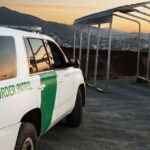Our series on Police Oversight Boards continues with a look at the qualifications and backgrounds of the members of these boards. Previously we covered what these boards are, their purpose, and their history. To summarize, these committees are intended to work on behalf of communities to review police actions in the interest of providing accountability and improving police conduct.
The impact on law enforcement and community-police relations varies from board to board as they have different advantages and limitations in their responsibilities, funding, resources, and knowledge. Memberships backgrounds and qualifications have a significant influence on the understanding and recommendations of oversight boards. For these boards to be effective, they need to balance impartiality with the experience and knowledge of police policy, training, and challenges. Different boards in different cities have prioritized intended lack of bias against expertise
Who serves on Police Oversight Boards?
Analysis of 12 cities with oversight committees, including Nashville, Detroit, St. Louis, Houston, Anaheim, Dallas, Chicago, a report from the Department of Justice and a Columbia University survey of multiple cities showed three main types of oversight board member qualifications. Also important to keep in mind is not only what qualifications they have, but how they are appointed. Some methods ensure more law enforcement knowledge and insights or more government input and accountability.
Board members with past law enforcement or criminal justice experience or some connection
A PBS Frontline report which provides a helpful overview of Oversight Boards mentions that some cities have boards with law enforcement personnel combined with civilians. Here’s a roundup of major cities with boards whose membership have some qualification standard that involves law enforcement or criminal justice experience or participation:
- Detroit’s oversight board has eleven members with some who are retired police, but that experience is not required.
- Houston‘s board, the largest one analyzed, has 29 members with a variety of different backgrounds and qualifications. Members are required to be experts in criminal justice which could be retired judges or prosecutors, civil rights attorneys, and experts or scholars from academia.
- Chicago does not currently have oversight boards, but a proposal under consideration would require that members “be required to live in Chicago and hold extensive work experience in fields including law, public policy, mental health, social work, law enforcement and community organizing.”
- In Albuquerque, no professional experience is required, but members have been involved in some way for several years with the police department and are appointed by the city council.
Board members with no connection to law enforcement
The other type of qualification leans heavily away from specialized expertise, with requirements that prohibit current law enforcement officers from participating as a board member. Large cities with this type of board membership include:
- St Louis police oversight board members should not hold any public office, not be an employee of city or state, have no family employed in the police department, not have been convicted of a felony, though the board can have one member who was a previously commissioned employee of a local, state, or federal law enforcement agency.
- In Nashville, where the city’s charter was recently changed to include an oversight board, the future board will have eleven people, who are approved by city council and will be made up of a combination of seven members from community organizations, two from the city council itself, and two who have been recommended from the Mayor’s office. This board membership makeup is not final, so requirements or restrictions on law enforcement experience are incomplete.
- Newark, like the Nashville plan, also has seven oversight board members from community organizations, though they are nominated by community organizations not necessarily serving in this organization.
- In Washington DC four of five board members have no current connections to law enforcement.
- Anaheim’s current board has no experience with law enforcement and features a real estate exec, a supervisor at an aerospace company, a retired truck driver, a student, a nurse, and a retired retail worker.
Conclusion
 For these boards to positively affect police oversight and positivity impact the communities they serve, the need to improve things and have impact. As they are currently constructed, it is hard to see how they can have that impact. One of the most critical, discussed issues that police have to overcome in 2019 is community relations. Much work needs to be done to strengthen and in some cases re-establish community relations and the foundation has to be trusted. Oversight boards have been implemented to improve community trust in police, but law enforcement officers are appropriately skeptical of uniformed, untrained, under resourced oversight boards and so trust will remain an issue for police and their communities until there are changes.
For these boards to positively affect police oversight and positivity impact the communities they serve, the need to improve things and have impact. As they are currently constructed, it is hard to see how they can have that impact. One of the most critical, discussed issues that police have to overcome in 2019 is community relations. Much work needs to be done to strengthen and in some cases re-establish community relations and the foundation has to be trusted. Oversight boards have been implemented to improve community trust in police, but law enforcement officers are appropriately skeptical of uniformed, untrained, under resourced oversight boards and so trust will remain an issue for police and their communities until there are changes.








